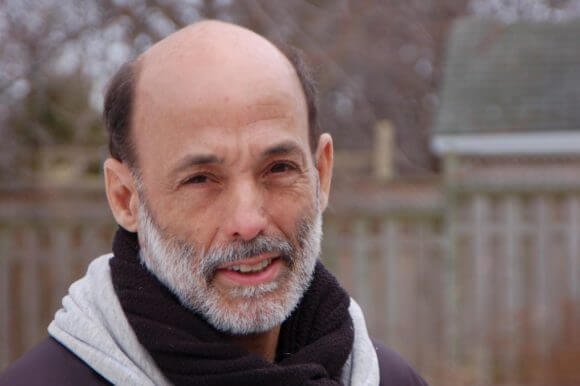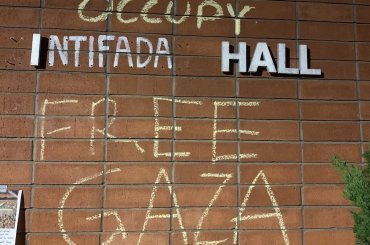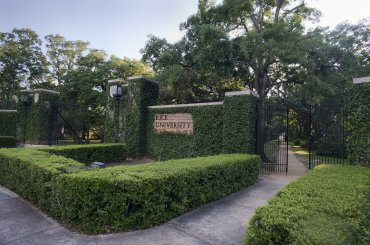I’m the Kattenburg in Kattenburg v. Canada (Attorney General) — a recent Federal Court of Canada ruling destined to be cited, in italics, for years. This site has reported on the case here and here and here.
In her landmark ruling this past July 29, upholding a complaint of mine going back to early 2017, the Honourable Madam Justice Anne Mactavish declared that ‘Product of Israel’ labels on wines produced by Jewish settlements in the West Bank, outside Israel’s internationally recognized borders, are “false, misleading and deceptive.”
Most significantly, Judge Mactavish ruled that consumer choice constitutes a form of protected speech under Canada’s Charter of Rights & Freedoms, that deceptive labeling infringes on that right, and that Canadians have the right to purchase or avoid products, and to engage in boycotts, based on their political or social conscience.
“Identifying Settlement Wines incorrectly as ‘Products of Israel’ inhibits the ability of [Canadians] to express their political views through their purchasing choices, thereby limiting their Charter-protected right to freedom of expression,” Judge Mactavish wrote, upholding arguments made by counsel for Independent Jewish Voices, that intervened in my case.
Predictably, Judge Mactavish’s ruling was greeted with howls of outrage from the Israeli government, pro-Israel lobbyists, senior Liberal Party MPs and members of the Canadian Zionist community, who claimed that the ruling endorses BDS (boycott, divestment and sanctions) and fuels antisemitism.
Canada’s largest Jewish publication, the Canadian Jewish News, took a major swipe at me. In a commentary entitled “When not to play the ‘Child of Holocaust Survivors’ card”, CJN correspondent Ron Csillag likened me to former Toronto area Member of Parliament Mark Adler, who was condemned for boasting about his CHS status during a re-election bid, and to Jewish-American academic Norman Finkelstein — referred to by Csillag as “odious” — who commonly conjures up his CHS status in the course of critiquing the “Holocaust Industry.”
“Here we go again,” Csillag fumed: “another name in the news hoping someone will notice that his parents were Holocaust survivors, in a matter wholly unrelated to the Holocaust.”
Csillag’s unsolicited advice to me: “leave your Holocaust-issued moral compass at home when what you’re doing has nothing to do with the Holocaust and aims only to suggest that, somehow, you are special because your parents suffered. Unless it’s at a job at a Holocaust centre or as a Holocaust educator, it’s hard to imagine a scenario in which one should trade on the status. Trying to score points with it in a court of law seems especially inappropriate.”
“Being a child of survivors does indeed confer a special status,” Csillag went on, “but it shouldn’t be on your resumé or used as a cudgel in the public arena.”
“Thanks, Ron,” I wrote, in a rebuttal the CJN declined to publish. “Just one question: How is it possible to write a commentary about someone — essentially a work of character assassination, capped by a large head shot of the targeted party — without having actually spoken to them?”
Csillag certainly had the chance. Two months prior to my victory in Federal Court, Csillag emailed my attorney, Dimitri Lascaris, inquiring about the relevance of my declared CHS status to the wine labeling case. Csillag could have asked me directly. He knew how to reach me. But Dimitri helped out:
“David’s answer is that his parents’ experiences have helped set his moral compass,” Dimitri replied. “He would be happy to explore this further with you face to face. I have copied David on this email so that, if you would like to meet with him, you and he can set up that meeting directly with each other.”
Silence on Csillag’s end. This past May 21 and 22, Csillag sat in the back of the Toronto courtroom where my wine labeling case was being heard, directly behind the folks from B’nai B’rith Canada and the Centre for Israel and Jewish Affairs (Canada’s version of AIPAC), scribbling notes. I approached him in a congenial manner, offering to talk with him about my wine labeling case and personal motives as Applicant to the court. Csillag nodded nervously and turned away, avoiding me thereafter.
Ron Csillag’s Kattenburg-avoidance comes as no surprise. He obviously doesn’t agree with me that Jewish settlements are built on stolen land, and that settlement wines and other products should therefore be banned from Canada — certainly labeled truthfully on store shelves, so consumers can decide for themselves whether or not to aid and abet war crimes.
More to the point, it appears that Csillag doesn’t wish to give voice to the ethical perspectives that inform my stance on settlement wines, largely derived from my experience as the child of Holocaust survivors (CHS), and from the lessons I learned from my parents, especially my father, whose mother died in a Sobibor gas chamber.
Aside from the fact that journalists are supposed to treat their subjects fairly (especially when they’re slagging them), Csillag missed a great opportunity. Rather than scoffing at the “2G” generation, those CHSers with “finely tuned antennae when it comes to prejudice and suffering” (Holocaust memory apparently imprinted in their psyche and DNA), Csillag might have reflected on how this plays out in different situations.
To pick an obvious one, in defense of their permanent occupation/colonization of the West Bank, their ceaseless acts of land theft, their systematic oppression of the Palestinian people, their right to kill Palestinians, no questions asked, to violate international law with impunity, Benjamin Netanyahu and his government constantly “play the Holocaust card.” Israeli school kids get jetted off to Poland each year to visit the death camps, ideally returning with more zealous loyalty to the “Jewish state.”
Here in Canada, Csillag pointed out in his commentary, politicians like Mark Adler (Conservative MP for York Centre from 2011 to 2015) leverage their “2G” generation status to enhance their electoral prospects. Other politicians invoke the Holocaust, and putative rise of antisemitism, as justification for not upholding international humanitarian and human rights laws, as Canada is obliged to do, but doesn’t, in Israel’s regard.
I, on the other hand, do not use my CHS status “as a cudgel in the public arena,” capitalizing on “an accident of birth,” as Csillag claims. I had nothing to gain in my wine labeling case by identifying myself to the Federal Court as such. It was entirely appropriate, indeed expected of me to tell the court who I am. Doing so established my background, motives and potential standing to raise the wine labeling issue. I identified myself as a wine lover, science educator, journalist, web publisher, human rights activist, and child of Holocaust survivors.
If Ron Csillag had had the curiosity to query me directly about the connection between my stance on settlement wines and my CHS status, he might have been surprised to hear that I’m not precisely sure. Why do I weep when I speak about my grandmother, or light a candle for her on Mount Zion? Why do I — not in the least religious or traditional — feel compelled to kiss the Western Wall, and cry when I do so, then head off to the Palestinian neighborhood of Silwan, ten minutes away, to speak with people whose homes are being demolished by Jewish settlers?
Who knows. It certainly isn’t something I make a big fuss about. Rather than smearing me in his July 31 CJN commentary, beneath a full screen head shot, Ron Csillag should have asked. He would have been rendering a service to his readers.




By the way, America’s favorite Rabbi, Shmuley Boteach, just ran a full page ad in the New York Times about the wine-labelling issue. “Europe’s Dark, Full Bodied Specialty: Labelling Jews”
https://twitter.com/LawfareProject/status/1163118835718926338/photo/1
“Being a child of survivors does indeed confer a special status,”
I’m a child of people who survived German bombing of Manchester. What special status does that give me?
This particular argument is disingenuous. So extremely intellectually dishonest. You’d have to drunk a million gallons of koolaid to buy into it.
The problem is that the products cannot be labelled as made in Israel. That’s what Israel, settlers and zionists want. Labelling it as such would be a pro Israel soveriegnty message whether intended as such or not. At the same time labelling it as such would clearly more obviously label the product as “Jewish” which concerns them not a bit.
The products have been made in Palestine (the majority of countries representing the vast majority of humanity have recognized Palestine as a state whether one likes it or not) and should be labelled as such. Of course if they were labelled as such I would have to look for secondary evidence as to whether the products are “Jewish” or not if that was my motivation and target.
The only reason to object to this labelling is that Irsael and it’s supporters want an end run around law which applies to all. They always have as Israel has excelled at violating laws and norms of nations.
I wish someone would corner that nasty bigot boteach and have him explain how permitting or requiring product of Israel is somehow not the labelling of Jews while this is.
The word Jewish is in quotes for a couple of reasons. Primarily the mere concept of a Jewish or even a Christian, Hindu, Moslem product is absurd. Secondly it’s a word they used when it has nothing to do with the issue.
” as justification for not upholding international humanitarian and human rights laws, as Canada is obliged to do, but doesn’t, in Israel’s regard.”
I would like to see the rationale behind that for sure.
I wonder if Mr. Csillag has ever fumed and gone on at Zionists, Zionist organizations and the State of Israel for using the Holocaust as a cudgel in the public arena to advocate, justify and/or defend the past and on-going evils committed deliberately and with impunity by Zionists, Zionist organizations and the State of Israel.